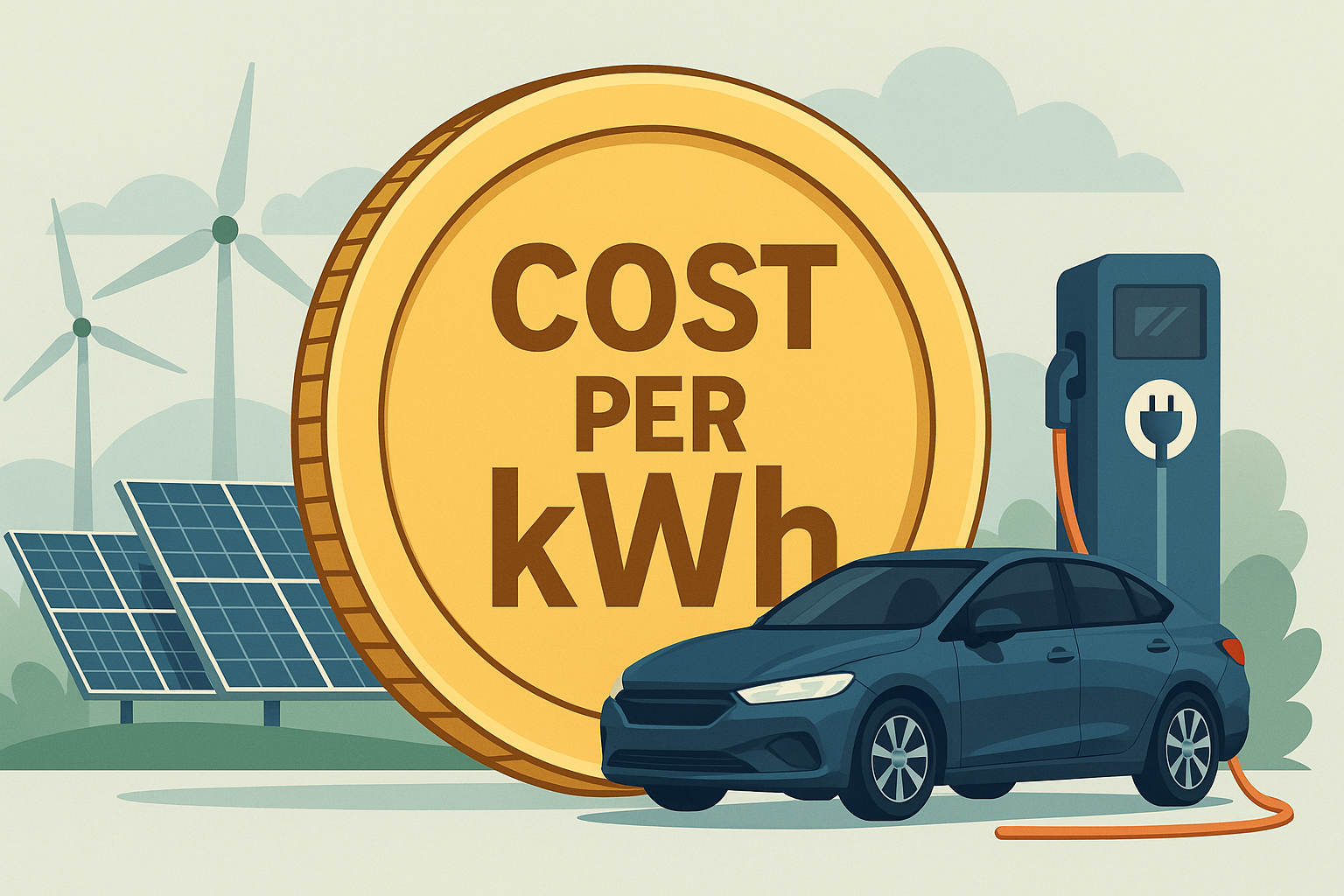What is Cost Per kWh?

Definition
Cost per kilowatt-hour (kWh) is the standard pricing unit for electricity used to charge EVs. It reflects the amount drivers pay for each kWh delivered to their vehicle and is the most transparent method for calculating charging expenses.
Why Cost Per kWh Matters
Pricing shapes consumer behavior and infrastructure adoption. Affordable and predictable rates build trust and encourage charging at convenient times. For charging operators, understanding and controlling cost per kWh is essential for profitability and competitiveness in the market.
How it Works
The cost per kWh is determined by the electricity tariff, taxes, utility charges, and sometimes demand fees for peak usage. Smart metering and time-of-use tariffs can influence costs by offering cheaper rates during off-peak hours. Energy storage systems and on-site solar further help lower effective cost per kWh for operators.
Key Technologies / Features
Cost per kWh is managed through smart meters, dynamic pricing algorithms, and integration with renewable power. Utilities may design EV-specific tariffs that encourage off-peak charging, while charging operators use battery systems to store cheap electricity for later use.
Applications
- Home charging with utility EV tariffs offering night-time discounts.
- Public charging stations billing drivers per kWh consumed.
- Fleet depots scheduling charging during low-tariff periods.
- Operators leveraging on-site solar or storage to reduce effective costs.
Benefits
Transparent per-kWh pricing builds consumer confidence, ensures fairness, and reduces range anxiety by allowing accurate cost estimates. For operators, it creates opportunities to optimize operations and increase profitability while maintaining competitive prices.
Use Cases
Utilities in India and abroad provide special EV tariffs to encourage adoption. Public hubs implement dynamic kWh pricing to reflect demand. Fleet managers align charging schedules with off-peak rates to save on energy bills.




